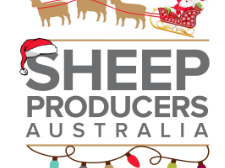top of page

PROUD ADVOCATES FOR
THE PEOPLE PRODUCING THE
BEST LAMB IN THE WORLD
Sheep Producers Australia is the national peak body representing Australia's 20,000 sheepmeat producers.

Order your eID tags through Mob Mate
ORDER NOW
*Automatically applied to order
Latest News
Our producers work hard, and we do too to enhance the productivity, profitability and sustainability of the sector.
We do this by:
Advocating on behalf of producers with government and industry stakeholders
Monitoring investment of producer levies
Engaging with our members
Consulting with industry and sharing important information and solutions
Improving understanding of the key issues facing Australian sheep producers.
bottom of page














